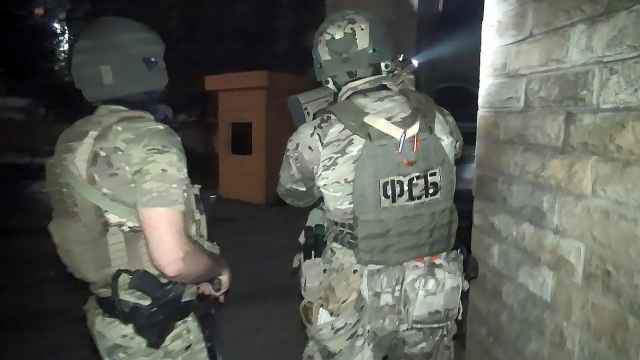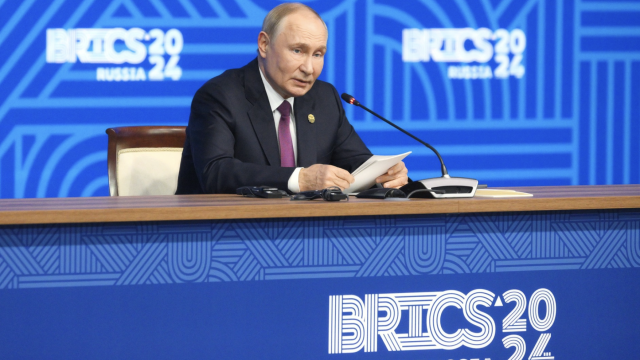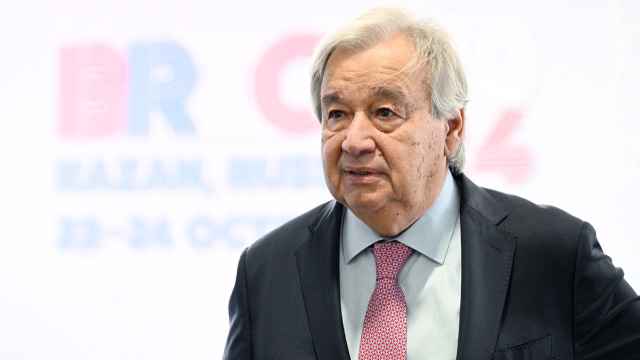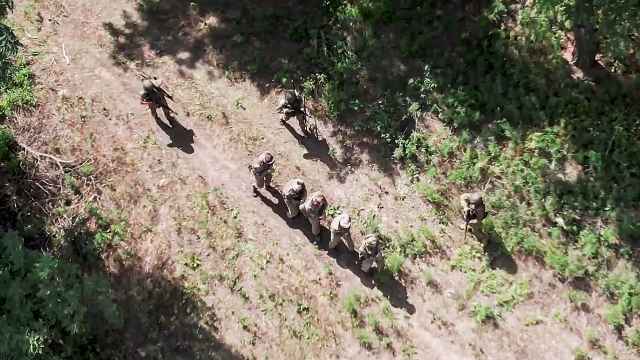Ukraine’s successful counterattack in the Kharkiv region isn’t just a major defeat for the Kremlin on the battlefield, but on the propaganda front too. Active Russian supporters of the war are outraged and demoralized by the retreat, and blame their country’s military leadership for it. Now they are demanding that President Vladimir Putin take decisive action, and are even questioning how serious his intentions in Ukraine really are.
In launching the war against neighboring Ukraine, Putin won over his country’s ultra-patriots and turned them into his fiercest supporters. Having radicalized them with imperialist slogans and actions, the Kremlin now risks those most vitriolic supporters turning against it. Trying to appease them is also a risky move, as it would alienate the passive majority of Russian society, which may support the “special operation,” but certainly does not want to actually take part in it.
Ukraine’s blitz counterattack succeeded in driving out Russian troops from large parts of the Kharkiv region in just a few days. Russia’s Defense Ministry described what had happened as simply “the regrouping of troops.” Yet the real scale of Russia’s retreat didn’t go unnoticed by ultra-patriot channels on the Telegram messaging app. Their authors have described it as a catastrophe, and have gone as far as to criticize the Russian leadership, demanding the truth about the situation on the ground, purges in the army chain of command, and other radical measures such as a general mobilization and “all-out war.”
In the six months since the start of the war, the number of people subscribing to these channels has grown significantly, and some now have followings approaching the million mark. The war has given them a new sense of connection to the authorities, and confidence that they now have the right to issue the Kremlin with their demands. Those demands boil down to a general mobilization, conversion to a wartime economy, and shelling Ukrainian cities to deliberately destroy civilian infrastructure. The ultra-patriots are openly hinting that they are disappointed with Putin’s apparent lack of resolution.
For the Kremlin to accept these demands, however, would be to go against the mood of the majority of the Russian public, which is indifferent to the retreat from Kharkiv, if, indeed, it even knows anything about it. It is the “special operation” as depicted by state propaganda that Russian people support, and not an “all-out war.” It suits them that the fighting is going on somewhere far away, and that only professional soldiers and volunteer fighters from Donbas are taking part in it. People are certainly not prepared to go to the front themselves or to send their own children there. Even opinion polls conducted during the war and amid strict censorship show that the Russian people would support their president if he signed a peace agreement with Ukraine.
Ordinary Russians are tired of news about the war. The ratings of state-owned TV channels that largely air political talk shows are in decline. Entertainment shows are gradually returning to the airwaves. The Russian public does not need distracting from news about the retreat from Kharkiv: people simply don’t want to know. And state propaganda, which has from the start focused on rousing rhetoric rather than events on the ground, obliges them in that. This is why, while the ultra-patriots are panicking and beginning to despair, Muscovites are blithely celebrating City Day.
The rupture between the Kremlin and the ultra-patriots has come about largely because when the Russian regime embarked on this war, it was banking on a blitzkrieg. Kyiv would be taken in a matter of days, Ukrainian President Volodymyr Zelensky would flee the country, and the only real consequences would be limited to sanctions and the burden of propping up the occupied territory. That scenario would have satisfied both the ultra-patriots and the silent majority. They would each have gotten proof of the imperial might of Russia and its army, and that would have been enough to satisfy them.
Instead, the fighting dragged on, and now Russian troops are even in retreat, which has ended the ad hoc alliance between the ultra-patriots and ordinary Russians. The fervent supporters of the war know exactly what they want — a “real,” all-out war and the capitulation of Ukraine — and are determined to go further, despite the mounting difficulties. What ordinary Russians want above all, meanwhile, is not to have to fight, and no amount of propaganda and imperialist rhetoric is likely to change that.
This divide between the two groups of its supporters leaves the Kremlin facing a serious political crisis that has gradually been taking shape since the first few days of the war. The Russian regime has driven the ultra-patriots’ expectations sky high with its bellicose bravado. As far as they are concerned, if, as Putin said, “we haven’t even really started,” then now is the time to do so, since it has gotten to the point of a humiliating retreat.
From a purely pragmatic point of view, however, Putin and his subordinates cannot admit any failure right now, or indeed react in any way to the retreat. They must continue to pretend that everything is going according to plan, and that the troops were simply redeployed in order to focus efforts on the more important prize of the Donbas. For this is what most Russians — tired of war and frightened of a general mobilization — want to hear. It is precisely this passive loyalty of the silent majority that keeps Putin in power. The ultra-patriots may make a lot of noise, but they are in the minority.
The Kremlin can’t just ignore its most zealous supporters, of course: their discontent might spread to other, less radical Russians who support the war but have a less sober view of the state of the Russian army, and who genuinely believe that Russia hasn’t really started fighting. Then the Putin majority will start to unravel.
For this reason, the president will most likely try to meet some of the radicals’ demands and declare a partial mobilization, or replace the Defense Ministry leadership, or start resorting to even more inhumane methods of waging war. The recent shelling of Ukrainian electrical power plants and other critical infrastructure can be considered the start of that. There will also be siloviki, or security service officials, who promise to get results in no time at all, as Chechen leader Ramzan Kadyrov has already tried to do. The Kremlin, however, will try to avoid alienating the loyal majority that does not want to fight on any terms. Or, at the very least, it will put off doing so until the course of the war leaves it with no choice.
This article was first published by the Carnegie Endowment for International Peace.
A Message from The Moscow Times:
Dear readers,
We are facing unprecedented challenges. Russia's Prosecutor General's Office has designated The Moscow Times as an "undesirable" organization, criminalizing our work and putting our staff at risk of prosecution. This follows our earlier unjust labeling as a "foreign agent."
These actions are direct attempts to silence independent journalism in Russia. The authorities claim our work "discredits the decisions of the Russian leadership." We see things differently: we strive to provide accurate, unbiased reporting on Russia.
We, the journalists of The Moscow Times, refuse to be silenced. But to continue our work, we need your help.
Your support, no matter how small, makes a world of difference. If you can, please support us monthly starting from just $2. It's quick to set up, and every contribution makes a significant impact.
By supporting The Moscow Times, you're defending open, independent journalism in the face of repression. Thank you for standing with us.
Remind me later.








